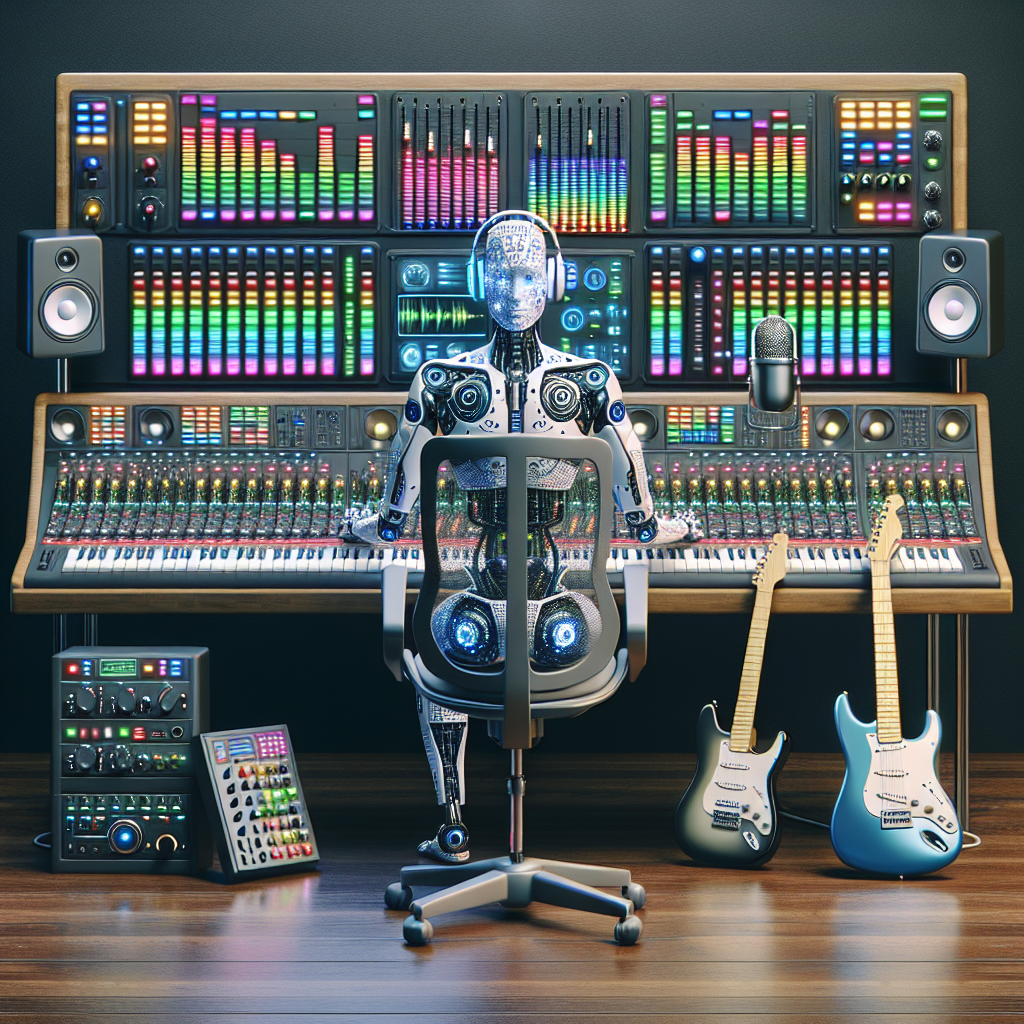Music production and mixing have significantly evolved over the years, thanks to advancements in technology. One of the most notable innovations in this field is the integration of artificial intelligence (AI) into the production and mixing process. AI has revolutionized the way music is created, making it easier and more efficient for artists and producers to bring their visions to life.
The Role of AI in Music Production
AI has had a profound impact on music production, offering a wide range of tools and capabilities that can enhance the creative process. One of the most popular uses of AI in music production is in the creation of virtual instruments and sounds. AI algorithms can analyze and synthesize audio data to create realistic and high-quality virtual instruments that can be used in music production.
AI can also be used to generate musical ideas and compositions. For example, AI algorithms can analyze existing music data to identify patterns and trends, which can then be used to generate new musical ideas. This can be particularly useful for artists and producers who are looking for inspiration or are struggling to come up with new ideas.
In addition to creating virtual instruments and generating musical ideas, AI can also be used to automate certain tasks in the music production process. For example, AI algorithms can be used to analyze and clean up audio recordings, adjust levels and dynamics, and even create basic mixes. This can help to speed up the production process and free up time for artists and producers to focus on more creative aspects of their work.
The Role of AI in Mixing
AI has also had a significant impact on the mixing process, offering a range of tools and capabilities that can help to improve the quality of mixes. One of the key ways that AI is used in mixing is in the analysis and processing of audio tracks. AI algorithms can analyze audio data to identify issues such as noise, distortion, and imbalance, and then apply processing techniques to correct these issues.
AI can also be used to assist in the automation of certain mixing tasks. For example, AI algorithms can be used to set levels, panning, and EQ settings automatically, based on the characteristics of the audio tracks. This can help to speed up the mixing process and ensure that mixes are consistent and balanced.
Another way that AI is used in mixing is in the creation of personalized mixes. AI algorithms can analyze the preferences and listening habits of individual listeners, and then create mixes that are tailored to their preferences. This can help to enhance the listening experience for listeners and improve the quality of mixes overall.
FAQs
Q: Is AI replacing human musicians and producers in the music industry?
A: While AI is certainly changing the way music is created and produced, it is not replacing human musicians and producers. AI is simply a tool that can assist artists and producers in their work, helping them to be more efficient and creative. Human creativity and emotion are still essential components of music production, and AI cannot replicate these qualities.
Q: How accessible is AI technology for musicians and producers?
A: AI technology is becoming increasingly accessible for musicians and producers, with a wide range of AI tools and software available on the market. Many of these tools are user-friendly and can be easily integrated into existing workflows. However, some AI technology can be quite complex and may require some technical knowledge to use effectively.
Q: What are the potential drawbacks of using AI in music production and mixing?
A: One potential drawback of using AI in music production and mixing is the risk of losing the human touch and emotion that is essential to music. AI algorithms can be highly efficient and precise, but they may lack the creativity and emotion that human musicians and producers bring to their work. Another potential drawback is the risk of over-reliance on AI technology, which could limit the creativity and innovation of artists and producers.
In conclusion, AI has become an essential tool in music production and mixing, offering a wide range of capabilities that can enhance the creative process and improve the quality of music. While AI is not replacing human musicians and producers, it is changing the way music is created and produced, making it easier and more efficient for artists to bring their visions to life. As AI technology continues to evolve, it will be exciting to see how it further shapes the future of music production and mixing.

